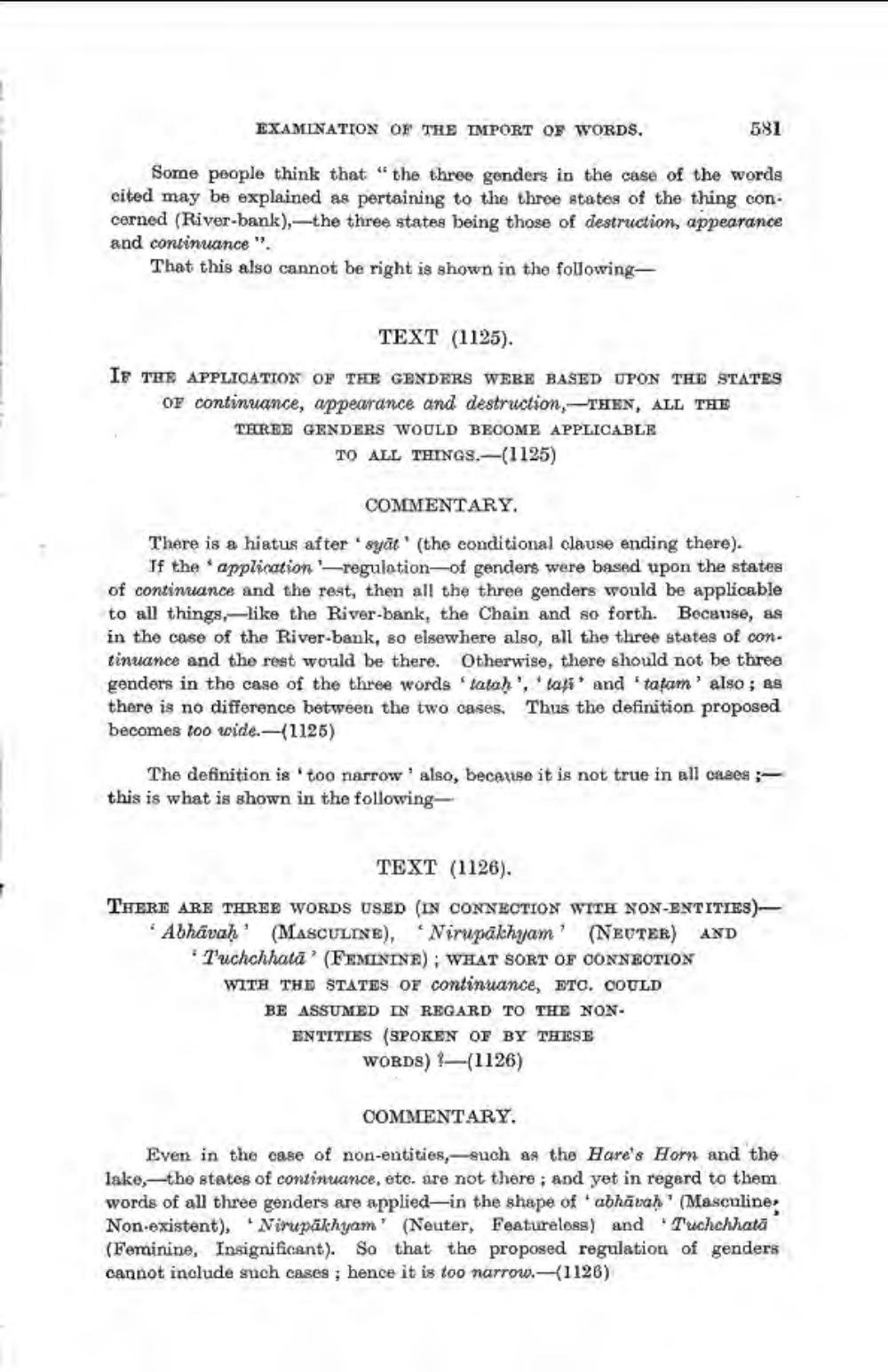________________
EXAMINATION ON THE IMPORT OF WORDS.
581
Some people think that "the three genders in the case of the words cited may be explained as pertaining to the three states of the thing con. cerned (River-bank),--the three states being those of destruction, appearance and continuance".
That this also cannot be right is shown in the following
TEXT (1125). IF THE APPLICATION OF THE GENDERS WERE BASED UPON THE STATES OF continuance, appearance and destruction,-THEN, ALL THE TERDE GENDERS WOULD BECOME APPLICABLE
TO ALL THINGS.-(1125)
COMMENTARY
There is a hiatus after syāt' (the conditional clause ending there).
Tf the application regulation of genders were based upon the states of continuance and the rest, then all the three genders would be applicable to all things, like the River-bank, the Chain and so forth. Because, as in the case of the River-bank, so elsewhere also, all the three states of continuance and the rest would be there. Otherwise, there should not be three genders in the case of the three words 'tatah', 'lali and 'tatam' also ; es there is no difference between the two cases. Thus the definition proposed becomes too wide.-(1125)
The definition is 'too narrow also, because it is not true in all chees-- this is what is shown in the following
TEXT (1126). THERE ARE THREE WORDS USED (IN CONNECTION WITH NON-ENTITIES) · Abhavah' (MASCULINE), “Nirupadhyam' (NEUTER) AND * Tuchchhată' (FEMININE); WHAT SORT OF CONNECTION WITH THE STATES OF continuance, ETC. COULD
BE ASSUMED IN REGARD TO THE NONENTITIES (SPOKEN OF BY THESE
WORDS)-(1126)
COMMENTARY.
Even in the case of non-entities,-euch as the Hare's Horn and the lake, the states of continuance, etc. are not there, and yet in regard to them words of all three genders are applied-in the shape of abhāvah' (Masculine Non-existent), Virupakhyam' (Neuter, Featureloss) and Tuchchhatā (Feminine, Insignificant). So that the proposed regulation of genders cannot include such cases ; hence it is too narrow.—1126)




